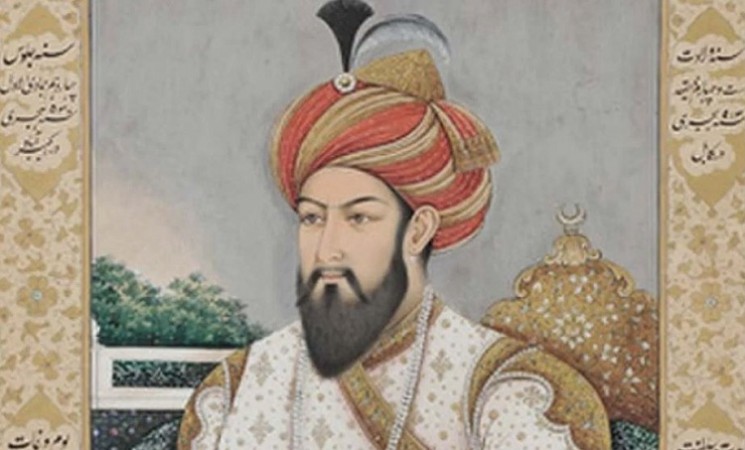
On July 23, 1555, the Mughal Emperor Humayun achieved a remarkable victory by reconquering the historic city of Delhi after defeating the Afghan ruler Sikandar Suri. This significant event marked a turning point in Humayun's tumultuous reign, as he reclaimed his lost empire and reestablished Mughal rule in northern India. The battle of Delhi was not merely a military conquest; it was a momentous event that shaped the course of Indian history and solidified the Mughal dynasty's presence in the region.
The Rise and Fall of Humayun: Humayun, the eldest son of the great Mughal Emperor Babur, ascended to the throne in 1530 after his father's death. Although a capable and well-educated ruler, Humayun faced numerous challenges during his reign. His rule was characterized by constant internal strife, regional rebellions, and external threats from various Afghan rulers who sought to challenge Mughal authority in northern India.
In 1540, Humayun suffered a crushing defeat at the hands of Sher Shah Suri, an ambitious Afghan warlord. Sher Shah's victory led to Humayun's exile from the Indian subcontinent, forcing him to seek refuge in Persia. For nearly fifteen years, Humayun wandered through the courts of various Persian rulers and sought alliances to regain his lost empire.
Humayun's Road to Redemption: After years of exile, Humayun managed to forge alliances with the Safavid dynasty of Persia, gaining the support needed to reclaim his kingdom. In 1555, he led a formidable army back to India, determined to restore the Mughal dynasty's glory and recapture the seat of power in Delhi.
The Battle of Delhi: Upon his return to India, Humayun confronted Sikandar Suri, who had assumed control over Delhi and a significant part of northern India after Sher Shah's death. Despite being outnumbered, Humayun's army demonstrated superior tactics and strategic maneuvering. The Mughals were also equipped with advanced artillery, which played a crucial role in their victory.
The Battle of Delhi was fierce and intense, lasting for several days. Humayun's forces faced formidable challenges, but the emperor's unwavering determination and leadership inspired his soldiers to fight valiantly. In a pivotal moment, Humayun personally led a daring charge that broke the enemy's defensive lines, turning the tide of the battle in his favor.
The Triumph and Aftermath: On July 23, 1555, Humayun's forces succeeded in defeating Sikandar Suri's army, leading to the recapture of Delhi. The victory marked a glorious moment in Mughal history and reaffirmed Humayun's rightful claim to the throne.
After regaining control of Delhi, Humayun embarked on a mission to consolidate his empire. He demonstrated clemency towards defeated adversaries and worked to win the loyalty of local nobles and regional rulers. Humayun's inclusive approach allowed him to gain the support of various factions, ensuring stability within his empire.
Humayun's reconquest of Delhi had far-reaching consequences for the Indian subcontinent. The event established the Mughal dynasty as a dominant force in northern India for the next several centuries. Humayun's son, Akbar the Great, continued to expand the empire, consolidating Mughal authority and ushering in an era of cultural and religious tolerance.
The battle of Delhi in 1555 remains a momentous event in Indian history, showcasing the indomitable spirit of the Mughal Emperor Humayun. His perseverance, leadership, and strategic acumen paved the way for the restoration of the Mughal dynasty and the establishment of an enduring empire that would leave an indelible mark on the Indian subcontinent. The triumph of Humayun on this day in history, July 23, 1555, exemplifies the resilience of empires and the enduring impact of determined leadership in shaping the course of nations.
Read More: